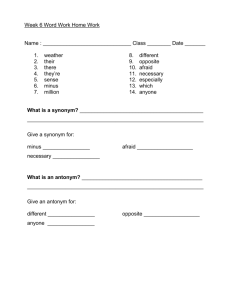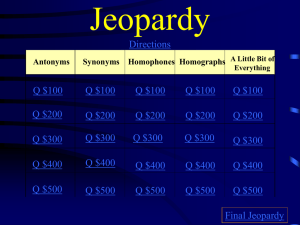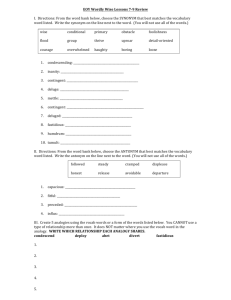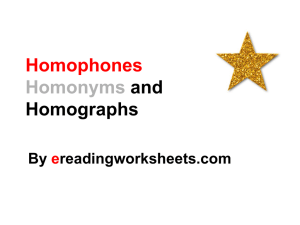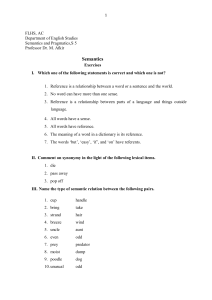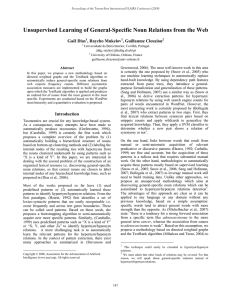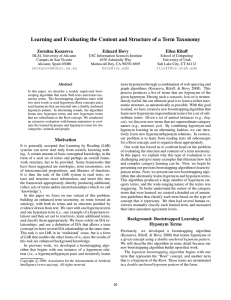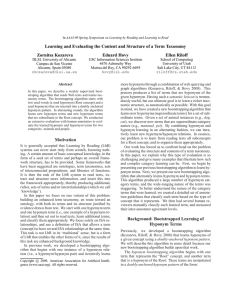terminology-backgrou..
advertisement
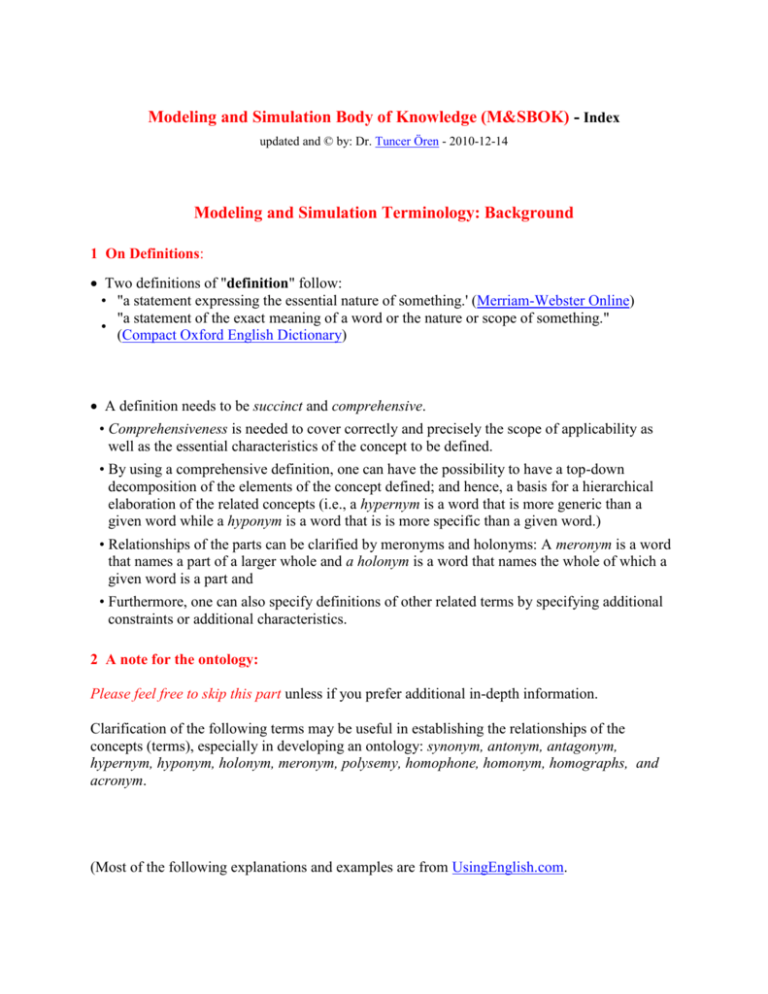
Modeling and Simulation Body of Knowledge (M&SBOK) - Index updated and © by: Dr. Tuncer Ören - 2010-12-14 Modeling and Simulation Terminology: Background 1 On Definitions: Two definitions of "definition" follow: • "a statement expressing the essential nature of something.' (Merriam-Webster Online) "a statement of the exact meaning of a word or the nature or scope of something." • (Compact Oxford English Dictionary) A definition needs to be succinct and comprehensive. • Comprehensiveness is needed to cover correctly and precisely the scope of applicability as well as the essential characteristics of the concept to be defined. • By using a comprehensive definition, one can have the possibility to have a top-down decomposition of the elements of the concept defined; and hence, a basis for a hierarchical elaboration of the related concepts (i.e., a hypernym is a word that is more generic than a given word while a hyponym is a word that is is more specific than a given word.) • Relationships of the parts can be clarified by meronyms and holonyms: A meronym is a word that names a part of a larger whole and a holonym is a word that names the whole of which a given word is a part and • Furthermore, one can also specify definitions of other related terms by specifying additional constraints or additional characteristics. 2 A note for the ontology: Please feel free to skip this part unless if you prefer additional in-depth information. Clarification of the following terms may be useful in establishing the relationships of the concepts (terms), especially in developing an ontology: synonym, antonym, antagonym, hypernym, hyponym, holonym, meronym, polysemy, homophone, homonym, homographs, and acronym. (Most of the following explanations and examples are from UsingEnglish.com. Synonym: A synonym is a word that means the same as another word, or more or less the same. If a word is slightly different, it is a near-synonym. eg: 'Movie' is a synonym of 'film'. In this example the former is more common in American English and the latter in British English. Antonym: An antonym is a word that means the opposite of another. eg: 'fat' is an antonym of 'thin' Antagonym: A word that can mean the opposite of itself is an antagonym. eg: clip (attach to), clip (cut off from). Hypernym: A hypernym is a word that is more generic than a given word. Hyponym: A hyponym is a word that is is more specific than a given word. Holonym: A holonym is a word that names the whole of which a given word is a part. Meronym: A meronym is a word that names a part of a larger whole. Polsemy: Polysemy refers to a word that has two or more similar meanings. eg: The house is at the foot of the mountains. One of his shoes felt too tight for his foot. 'Foot' here refers to the bottom part of the mountains in the first sentence and the bottom part of the leg in the second. Synecdoche: A Synecdoche is a word that refers to a part of something to mean the whole. eg: 'All hands on deck' is an example in which 'hands' is used to mean 'people'. Homophones: Homophones are words that are spelled differently but sound the same. eg: 'Rain', 'rein' and 'reign' Homonym: Homonym is a word that is written and pronounced the same way as another, but which has a different meaning. eg: 'Lie' can be a verb meaning to tell something that is not true or to be in a horizontal position. Homographs: Homographs are words that are written the same way but have different meanings and often different pronunciations. 'Wind' can mean the movement of air when talking about the weather. It can also mean to follow a course or way that is not straight; the road winds through the mountains. These are different words with different pronunciations although they are written the same way. words Homophones Homonyms Homographs spelled differently the same way the same way pronounced the same way the same way often differently meanings are different different different Acronym: An acronym is a kind of abbreviation. It is a word formed by taking letters from a phrase that is too long to use comfortably. eg: Laser is an acronym of Light Amplification by Stimulated Emission of Radiation. If the letters do not make a word, but are pronounced individually, as in the CIA or the BBC, it can be called an initialism.
